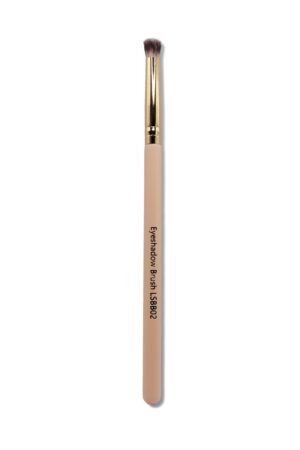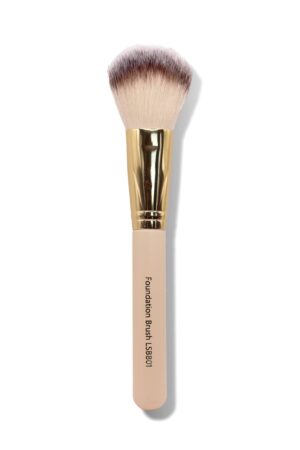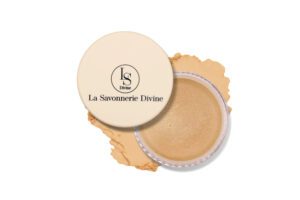

Handmade soaps are artisanal products crafted using natural ingredients and traditional methods. Unlike mass-produced commercial soaps containing synthetic chemicals and additives, handmade soaps are created in small batches with meticulous attention to detail. These soaps are typically made using cold process or hot process techniques, which involve combining oils and lye to initiate a chemical reaction that produces soap.
Natural ingredients such as essential oils, herbs, and botanicals contribute to the unique scents and properties of handmade soaps. Available in various shapes, sizes, and colors, handmade soaps are often aesthetically packaged, making them both practical and artistic. Handmade soaps are renowned for their gentle and nourishing qualities, making them suitable for all skin types, including sensitive and dry skin.
The use of natural ingredients like olive oil, coconut oil, shea butter, and cocoa butter helps moisturize and hydrate the skin, while essential oils provide aromatherapy benefits. These soaps are free from harsh chemicals and synthetic fragrances, offering a healthier alternative to commercial soaps. The glycerin naturally produced during the soap-making process is retained in handmade soaps, further enhancing their moisturizing properties.
Handmade soaps provide a luxurious bathing experience while offering numerous skin benefits.
One of the key benefits of handmade soaps is their ability to moisturize and nourish the skin. The natural oils and butters used in their production, such as olive oil, coconut oil, shea butter, and cocoa butter, help to hydrate the skin, leaving it feeling soft and smooth.
Handmade soaps are also known for their gentle and non-irritating nature. The absence of harsh chemicals and synthetic fragrances makes them suitable for sensitive skin, reducing the risk of irritation or allergic reactions. This makes them an excellent option for those with skin conditions or sensitivities.
The use of natural ingredients such as essential oils and botanicals in handmade soaps can provide additional benefits for the skin. These ingredients can help to soothe inflammation, promote cell regeneration, and improve overall skin health. Overall, handmade soaps offer a luxurious and pampering experience while providing numerous benefits for the skin.

Handmade soaps have a lower environmental impact compared to commercial soaps due to their use of natural ingredients and traditional production methods. Unlike commercial soaps, which often contain synthetic chemicals and additives that can be harmful to the environment, handmade soaps are made using natural ingredients such as plant-based oils, essential oils, and botanicals. These natural ingredients are biodegradable and do not contribute to water pollution or harm aquatic life when they wash down the drain.
Additionally, the production of handmade soaps typically involves minimal packaging, with many artisans opting for simple and eco-friendly packaging options such as paper wrappers or reusable containers. Furthermore, the production of handmade soaps often supports sustainable and ethical practices. Many artisans who make handmade soaps source their ingredients from local suppliers or grow them themselves, reducing the carbon footprint associated with transportation and supporting local economies.
Additionally, the traditional production methods used to make handmade soaps require minimal energy and water compared to the industrial processes used to make commercial soaps. Overall, handmade soaps offer a more environmentally friendly alternative to commercial soaps, making them a popular choice for those looking to reduce their impact on the planet.
| Ingredient | Benefits |
|---|---|
| Coconut Oil | Moisturizing and cleansing properties |
| Olive Oil | Rich in antioxidants and moisturizing |
| Shea Butter | Moisturizing and anti-inflammatory |
| Cocoa Butter | Hydrating and soothing |
| Aloe Vera | Soothing and healing properties |
When choosing a handmade soap, it’s important to look for high-quality natural ingredients that provide nourishing and beneficial properties for the skin. Some key ingredients to look for in handmade soaps include: 1. Olive oil: Olive oil is rich in antioxidants and vitamins A and E, making it a highly moisturizing and nourishing ingredient for the skin.
2. Coconut oil: Coconut oil has antibacterial and antifungal properties that help to cleanse the skin while also providing hydration. 3.
Shea butter: Shea butter is deeply moisturizing and helps to soothe dry and irritated skin, making it an ideal ingredient for those with sensitive skin. 4. Cocoa butter: Cocoa butter is rich in fatty acids that help to hydrate and protect the skin, leaving it feeling soft and supple.
5. Essential oils: Essential oils such as lavender, tea tree, and peppermint provide aromatherapy benefits while also offering various skincare benefits such as soothing inflammation and promoting relaxation. 6.
Botanicals: Botanicals such as calendula, chamomile, and rose petals can provide additional skincare benefits such as soothing irritation, promoting cell regeneration, and improving overall skin health. Overall, choosing a handmade soap with high-quality natural ingredients can help to ensure that you are providing your skin with the best possible care while also supporting sustainable and ethical practices.
Purchasing handmade soaps directly supports local artisans and small businesses, contributing to the growth of local economies and communities. Many artisans who make handmade soaps operate small-scale businesses from their homes or workshops, creating products with care and attention to detail. By purchasing handmade soaps, consumers are directly supporting these artisans and their craft, allowing them to continue creating high-quality products while also preserving traditional soap-making methods.
Furthermore, purchasing handmade soaps allows consumers to connect with the people behind the products and learn about the passion and dedication that goes into creating each bar of soap. Many artisans who make handmade soaps are passionate about their craft and take pride in creating products that are not only beneficial for the skin but also beautiful and unique. By supporting these artisans, consumers can help to preserve traditional skills and craftsmanship while also contributing to the sustainability of small-scale businesses.
Overall, purchasing handmade soaps is not only a way to access high-quality skincare products but also a way to support local artisans and small businesses, contributing to the growth of local economies and communities.

Handmade soaps contribute to reducing waste in several ways compared to commercial soaps. Firstly, many artisans who make handmade soaps opt for minimal packaging or eco-friendly packaging options such as paper wrappers or reusable containers. This reduces the amount of plastic waste generated from packaging materials, contributing to a more sustainable approach to product packaging.
Additionally, handmade soaps are often made using natural ingredients that are biodegradable and do not contribute to water pollution or harm aquatic life when they wash down the drain. This is in contrast to commercial soaps that often contain synthetic chemicals and additives that can be harmful to the environment. By choosing handmade soaps made with natural ingredients, consumers can reduce their impact on the planet while also enjoying high-quality skincare products.
Furthermore, many artisans who make handmade soaps prioritize sustainability in their production processes by sourcing ingredients locally or growing them themselves. This reduces the carbon footprint associated with transportation and supports local economies while also promoting ethical and sustainable practices. Overall, choosing handmade soaps is a way to reduce waste and minimize environmental impact while also enjoying luxurious and beneficial skincare products.
When choosing a handmade soap, there are several factors to consider to ensure that you find the right product for your skincare needs: 1. Skin type: Consider your skin type when choosing a handmade soap. For dry or sensitive skin, look for soaps that contain moisturizing ingredients such as shea butter or cocoa butter.
For oily or acne-prone skin, look for soaps that contain clarifying ingredients such as tea tree oil or activated charcoal. 2. Scent preferences: Consider your scent preferences when choosing a handmade soap.
Many artisans offer a variety of scents ranging from floral and herbal to citrusy and earthy, allowing you to find a scent that suits your personal preferences. 3. Ingredient transparency: Look for artisans who are transparent about the ingredients they use in their handmade soaps.
This can help you make an informed decision about the products you are purchasing and ensure that they align with your values and skincare needs. 4. Packaging: Consider the packaging of the handmade soap when making your decision.
Many artisans offer minimal or eco-friendly packaging options that contribute to reducing waste and environmental impact. 5. Support local: Consider purchasing handmade soaps from local artisans or small businesses in your community to support local economies and communities while also accessing high-quality skincare products.
Overall, choosing the right handmade soap involves considering your skincare needs, scent preferences, ingredient transparency, packaging options, and supporting local artisans. By taking these factors into account, you can find a handmade soap that not only provides beneficial properties for your skin but also aligns with your values and contributes to reducing environmental impact.
If you’re interested in learning more about the benefits of using handmade skincare products, you might want to check out this article on the difference between lip balm and lip butter from La Savonnerie Divine. It delves into the unique properties of each product and how they can benefit your skin. Check it out here.








Copyright © 2024 La Savonnerie Divine | Marketing & Design Geek in NY 🗽